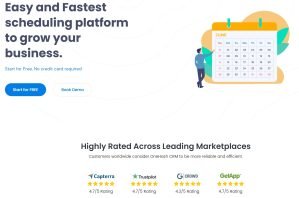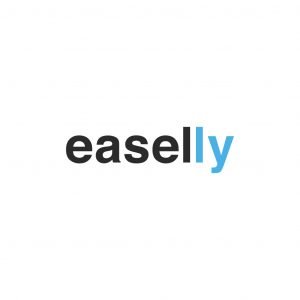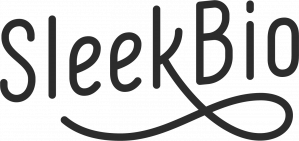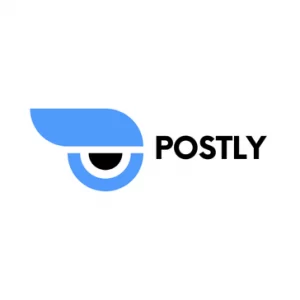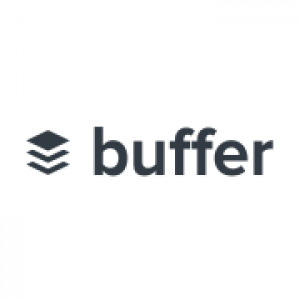Latest SaaS Deals
Best Lifetime SaaS Deals, Reviews, And More — The Ultimate Guide
Every business on this planet, especially in a fast-paced world full of digital marketers, always looks for ways to improve its economy and wants to make life easier and more efficient. SaaS deals give inexpensive access to business-scaling software. They allow startups, small businesses, and established enterprises to use premium tools at a fraction of traditional software purchases.
SaaS products have become extremely popular in every field because they are cloud-based, cost-effective, and flexible. Unlike conventional software, SaaS tools are hosted online and provide quick access to users, scalability, and automatic updates. SaaS deals are game-changing in this ecosystem because they allow companies to tap into sophisticated technology and capabilities without investing hundreds of thousands upfront. Startups and small businesses, in particular, can benefit from this access to high-powered features that were only once within the budgets of large enterprises.
Why do SaaS deals matter?
They allow businesses to buy high-quality software products at reduced prices, which helps them handle daily operations smoothly, improve customer experiences, and drive overall productivity. Consider lifetime deals, which are gaining traction and allowing companies to purchase their software solution for one flat fee that they only have to pay once rather than on a recurring basis. From project management tools to CRM, marketing, or collaboration solutions — SaaS deals bring the best bang for your buck.
We will explore all aspects of SaaS deals, including the ever-popular lifetime offer trend in the world of Software as a Service. We will review some of the best platforms where you can find these deals, such as AppSumo and SaaS Mantra. Plus, we’ll discuss the advantages of lifetime SaaS deals, how they stack up against subscription models, and expert advice on finding the best deals for your company. You will have learned everything this guide can teach you about SaaS deals, what they are, and how to use them to take your business a level up without breaking the bank. Let’s get started!
What Is a SaaS Deal?
What does SaaS offer?SaaS offers discounts and pricing plans from software companies so that businesses and individuals can get software products at a fractional price or with added value. These offers aim to help make premium SaaS tools more accessible to broader population groups, from new startups to established enterprises. With SaaS offers, businesses benefit from robust software solutions without paying massive upfront costs typically associated with purchasing software licenses.
Offering a free trial, introductory subscription pricing, or lifetime deals are just a few strategies SaaS companies employ to entice customers. Such deals provide companies with simplified access to necessary tools for project management, marketing, customer relationship management (CRM), and other tasks.
Meaning Of SaaS deals Type
1. Free Trials
The free trial is the most prevalent of all types of SaaS offers. This offer lets the user use a software product freely for some period of time – most commonly, 7, 14, or 30 days. Free Trials: Free trials are an excellent option for businesses to assess the features and functionality within the product without committing to a paid plan.
Benefits of Free Trials:
No-Strings trial period: Users can test the software without binding themselves to a multi-year agreement.
Practical Use: This helps companies determine whether the tool fulfills their requirements and seamlessly integrates with existing processes.
Opportunity to Evaluate Benefit: Free trials allow users to try the software for themselves in practical use and determine how it impacts productivity and overall operations.
2. Subscription Discounts
A common component of many SaaS pricing models is subscription discounts. Multi-month discounts are great because they reduce the price for initial months or make pricing more attractive for longer-term commitments. This can mean offering discounts to businesses that sign up for a subscription lasting an entire year rather than paying month by month, which may be around 20%.
The Advantages of Subscription Discounts:
Saving on Costs: Discounts can lower operating costs, especially for businesses that need multiple licenses or have a big team.
Cost-Effective: Subscription deals enable enterprises to use high-end tools at optimal prices even regularly.
Flexibility: choice of different payment terms (annual vs monthly); the business can scale as it wants.
3. Lifetime Deals
Having a lifetime deal is the hottest bait Saas offers. A perpetual license is a one-time payment pricing model that intends to provide customers with lifelong access to a software product, which usually offers heavy discounts compared to traditional subscription models. Lifetime deals are often found during promotional events or on a deal platform like AppSumo or SaaS Mantra. For businesses looking to use the software for multiple years, these deals can be very cost-effective over a long period.
Benefits of Lifetime Deals:
Limitless: A one-time software purchase means companies never have to make recurring monthly or yearly subscription payments.
Reduced Costs: Over time, lifetime deals can save businesses a small fortune—especially for software whose use would otherwise require regular payments.
One-Time Commitment: Businesses get immediate access to the complete range of features without worrying about future price increases or hidden costs.
The Benefits of SaaS Offers to the Businesses
A successful SaaS offer is a must-have for any business that aims to get access to premium tools without needing to pay large sums of money upfront or through long-lasting contracts. Free Trials, Subscription Discounts, and Lifetime Deals: Offering such incentives helps reduce costs while allowing the reallocation of resources as needed. Making use of these types of offers, you can do the following:
- Cut Down Operational Costs: SaaS tools can be costly, especially for businesses that require several tools in various departments. These tools are available at a reduced price or as part of a lifetime deal, so companies don’t need to pay full retail prices, lowering their operating costs.
- Unlock Premium Tools: Because SaaS is a deal, you can access fancy software tools outside your budget as an enterprise (or even a small startup). These tools assist with productivity, process automation, customer relationship management, and more.
- Scale Ability: Most SaaS Offers Are Designed to Scale. SaaS pricing models can scale to accommodate a business that is proliferating or needs to change its software, seasonally making it even more accessible for companies to grow and not have any savings.
- Better Decision-Making: SaaS helps enterprises connect different solutions for making data-based decisions. These tools (analytics platforms or CRM systems) can only benefit marketing efforts, customer care, and a business’s overall success.
To sum up, SaaS offers are the right tools for businesses seeking operational efficiency within a budget constraint. These pricing models make good software accessible to companies of all sizes through free trials, subscription discounts, or lifetime deals.
Understanding SaaS Sales
What Does SaaS Sales Mean?
The sale of cloud-based software solutions (typically via subscription or licensing models) is known as SaaS sales. A key difference from how software houses sold their products historically, with a one-time upfront cost to license the system, is that the sale of SaaS relies on recurring payments—clients continuously pay for access to cloud-hosted software. Through this model, businesses can harness sophisticated software capabilities without local installation or maintenance burdens. In return, SaaS providers regularly provide updates, support, and cloud-based services, giving customers flexibility and scalability.
On the other hand, SaaS sales draw customers in, getting them to buy subscriptions or licenses for some time. Sales tactics typically include custom demos, free trials, and competitive pricing to showcase the software’s value for a given company—all of which simplify the process of having companies sign up long-term.
SaaS Sales Models
Different SaaS sales models depend on your needs and your business strategy. Such models affect pricing, customer commitment, and the other ways users consume software subscription-based sales.
1. Subscription-Based Model: This is the most popular SaaS sales model, in which customers are charged on a recurring basis—monthly, quarterly, or annually—in exchange for access to the software. With subscription models, companies can easily scale their software use, and the SaaS provider enjoys a stable revenue stream.
Advantages of Selling via Subscription:
Regularity and Predictability: This model provides a predictable revenue stream to the business, thereby ensuring better cash flow forecasting.
Customer Flexibility: Customers can subscribe to a month-to-month plan or opt for an annual plan that provides better value.
Simpler Updates and Add-Ons: Subscription plans usually include tiered pricing, allowing businesses to upgrade to more robust features as they expand.
2. Freemium: A free version of the software is offered, with premium features or advanced functionalities available on a subscription basis. One of the most popular pricing models among test software is the freemium model, which can attract users by giving them a risk-free way to try the software before spending any money.
When is Freemium Used?
The freemium model is especially advantageous for software products that thrive on large user bases. It assists in making the product known, receiving feedback from followers and customers, and creating a community around it. This model is commonly used in SaaS companies like email marketing platforms, project management tools, and cloud storage services.
Usage-based: Compared to flat-rate usage, this type only charges for actual software usage. This is often seen with services where usage can vary, such as cloud computing or storage services, in which businesses pay only for the resources they consume.
3. Both the Freemium and Pay-as-You-Go models have their advantages.
Freemium enables businesses to reach a wider audience, some of whom might convert into paid customers. It further reduces entry points for smaller firms or newly formed companies.
Pay-as-you-go: Offers flexibility for users with varying usage requirements and prevents businesses from over-provisioning resources.
4. Lifetime Deals
Lifetime deals—paying a one-time sum for unlimited access to the software—are gaining popularity. This model is frequently presented as a limited-time offer or an inducement for early adopters. The whole point of a lifetime deal is that businesses can stop worrying about recurring payments, making it an option that users find appealing when they expect to use the software for years.
The Rise of Lifetime Deals: Why Are They Gaining Popularity?
Lower Costs: Over time, this can result in significant savings for businesses compared to paying for subscriptions. Lifetime deals serve as the best deal when companies plan on using the software for a long time.
More Value for Customers: The one-time payment allows customers to access the software without worrying about renewals and often also has access to future updates.
Provider Risk: Although TLDS are enticing for customers, they present a risk to SaaS providers, often limiting patching and updating capabilities or revenue from ongoing subscriptions.
Sales Strategies for SaaS Businesses
SaaS businesses can use different sales approaches to acquire customers and expand their customer base. Here are some of the best strategies:
1. Referral Programs
Many SaaS firms provide referral programs in which current customers are incentivized to refer brand-new users to the platform. These programs frequently offer incentives such as discounts, longer trial periods, or even money. Referral programs leverage the impact of word-of-mouth marketing, which tends to be more potent than traditional ads.
2. Influencer Partnerships
Having influencers in the field work with you is a great sales strategy for SaaS companies. By partnering with industry experts or thought leaders, SaaS businesses can leverage an influencer’s established audience and build trust more quickly. Authentic reviews and recommendations from influencers effectively convert followers into paying customers.
3. Limited-Time Deals
Another sales trick is to offer limited-time promotions or specials. A sense of urgency helps SaaS companies push customers to decide faster, converting leads into paying subscribers. These often include discounts on annual subscriptions or bundles that deliver more.
4. Free Trials and Demos
Offering free trials or demos of their products can be one of the most convincing tools for helping potential customers decide whether a product will suit them. A risk-free trial allows companies to experience the benefits and see how the software functions in their environment, thus raising the chances of conversion into a paid plan.
Advantages of SaaS Sales for Growing Your Company
Here are some advantages of SaaS sales strategies for business growth:
Continuous Revenue: Subscriptions generate predictable, consistent income to sustain and grow a business.
Ability to Scale: SaaS companies can create tiers of pricing plans or add-ons that provide additional value to customers, increasing revenue for the business without expanding the customer base. Another inherent quality in SaaS products is scalability, entailing that businesses can swiftly accommodate more users or services with no drastic infrastructure change.
Worldwide Distribution: SaaS products can be marketed to everyone, regardless of location. Cloud-based solutions allow companies to serve customers anywhere without the actual infrastructure.
Customer retention: Since SaaS sales are often based on customer relationships, there is a significant focus on retaining those customers. Continuous communication, relationship-building, and software improvements increase customer loyalty and retention.
To sum up, SaaS sales are integral to any SaaS business model. Through subscription-based models, freemium plans, lifetime deals, and sales tactics such as referrals and influencer partnerships, SaaS businesses successfully expand their user base and create a loyal customer fanbase to sustain their growth over the long term.
SaaS Companies: What Do They Provide?
SaaS companies offer extensive cloud-based software solutions to automate, optimize, and improve several functional areas of a business. SaaS products span nearly every department in your organization, from CRM (Customer Relationship Management) systems to project management tools. These tools allow companies to use enterprise-level software and not pay for extensive installations, maintenance, or infrastructure. With SaaS products, businesses can be more efficient, reduce costs, and scale quickly.
Overview of SaaS Products
SaaS products come in many different flavors, each addressing diverse organizational needs. The software these tools represent is cloud-based and, therefore, available to access from anywhere the internet connects. SaaS products are beautifully simple as they remove the need for a business to worry about maintaining servers, performing updates, or worrying about hardware-related issues.
Examples of common types of SaaS products include:
Customer Relationship Management (CRM): These tools manage customer interactions, track sales, and keep customer data.
Project Management: These tools facilitate efficient teamwork and project handling.
Marketing Automation — Products in this SaaS category assist with automating marketing processes, including email campaigns, social media management, and content marketing.
Finance & Accounting: SaaS tools that also serve finance management purposes, such as invoicing, payroll, tax tracking, etc.
Collaboration and Communication: They help you connect and collaborate with teams from anywhere in real-time.
SaaS companies provide tools that span several functions, allowing businesses access to sophisticated solutions without the headaches of conventional software installation and maintenance.
Categories of SaaS Products
We can categorize SaaS products by the business needs they fulfill. Here are a few of the primary categories:
Business Tools This category of tools focuses on facilitating better communication and operations within an organization. They assist in better communication, task coordination, and resource management for businesses. Some examples include:
Project Management Tools: Trello, Asana, Monday. Run your project and manage tasks, due dates, assignees, and progress on the project. name.
Communication Tools: SaaS such as Slack, Microsoft Teams, and Zoom enhance team members’ communication and host in-person or remote meetings.
Document Management: Cloud storage docs via Google Drive, Dropbox, et al. for team access at all times, etc.
Marketing and Sales Marketing & sales tools are essential to increase the efficiency of customer acquisition and engagement processes. These SaaS products allow businesses to automate marketing campaigns, monitor customer behavior, and organize sales pipelines. Examples include:
Email Marketing: Platforms such as Mailchimp and ConvertKit help businesses create and send email campaigns, analyze performance, and manage customer relationships.
Lead Generation: Tools such as HubSpot and Salesforce help capture leads, manage customer data, and streamline sales processes.
Social Media Management: Hootsuite and Buffer are examples of these types of software that allow businesses to schedule, track, and analyze social media posts and make it possible to manage campaigns through multiple platforms.
Customer service: Zendesk and Freshdesk offer several customer service solutions, such as ticketing, chat, and help desk support.
Finance & Accounting A semiconductor organization has to keep its financials in line, and these SaaS tools offer a flexible platform for invoicing, payroll, and accounting. With these tools as the driving force behind financial processes, automatic buttons are usually required to lessen the chances of human error in the various stages of accounting. Examples include:
Invoicing: Applications like QuickBooks and FreshBooks create and send invoices, track payments, and manage client accounts.
Payroll: Gusto, ADP, and other platforms offer payroll management tools, allowing businesses to ensure that employees are paid accurately and on time.
Financial Management: SaaS products like Xero and Wave help businesses budget, prepare financial reports, track taxes, and manage overall economic health.
Productivity tools facilitate efficiency in individuals or teams, reduce time spent on redundant tasks, and help stay organized. These SaaS products focus on seamless collaboration and better time management, which try to automate most menial tasks. Examples include:
Time Tracking: Time tracking apps like Toggl or Harvest help businesses track employee hours worked, project timelines, and billable hours.
Document Management: Google Workspace and Microsoft OneDrive offer organizers for documents & files with access to all devices.
Cloud Storage: Dropbox, Google Drive, Box—these services provide businesses with secure storage where files can be easily shared and collaborated on in real-time.
Examples of Common SaaS Offers?
To provide you with some perspective on the SaaS offers that exist in today’s market, here are some of the most recognizable SaaS offers of recent times:
1. AppSumo Deals
The #1 lifetime SaaS deals site for entrepreneurs and startups — AppSumo It offers hundreds of software tools across multiple categories, namely marketing, finance, productivity, design, etc. Most of the tools on AppSumo are available for a fraction of their actual price or at lifetime access, making it an appealing option for businesses looking to cut down on software expenses.
2. SaaS Mantra
SaaS Mantra is a well-known deal site that lists lifetime deals/discount subscriptions for SaaS tools. Please perform quickly. It is a tailored resource to help businesses with marketing automation, social media management, and content generation. SaaS Mantra is known for its high-quality products, which have an excellent user reputation and provide long-term value to organizations.
What Is SaaS
Definition of SaaS
Software as a Service (SaaS): A cloud-based delivery model that allows businesses and individuals to access software applications via an internet browser rather than having them installed and maintained on in-house servers or devices. In simple terms, SaaS applications run on the vendor’s servers, which take care of the infrastructure, supply for hosting, and everything security-wise, as well as updates and maintenance. SaaS is a subscription-based service that users pay for monthly, annual, or usage.
This model’s flexibility, scalability, and cost-effectiveness have made it very popular. Users access the software through a web browser rather than buying and installing it on individual computers or servers. Salesforce, Google Workspace, and Zoom are some examples of popular SaaS applications.
SaaS vs. Traditional Software
There are fundamental differences between SaaS and traditional software (also referred to as on-premises software):
Installation and Maintenance:
Conventional software needs to be installed on every device that will use it, which can be a complex and time-consuming process. Users must also take care of updates and bug fixes themselves, which is a lot of work. Rather, as SaaS applications are updated automatically by the service provider, users do not need to worry about maintenance, as they will always have the latest features and security patches.
- Cost:
Conventional software requires large upfront payments for licensing, setup, and hardware. There are also many hidden costs for updates and upgrades. Conversely, SaaS works on a subscription model most of the time, which allows costs to be distributed over time and facilitates budgeting. With SaaS, the expensive hardware and IT personnel needed to manage and maintain software infrastructure are also eliminated.
Accessibility:
Traditional software lives on the device where it was installed, creating a challenge for remote teams or employees who need to move around but still require tools. SaaS, on the other hand, is always accessible by any device that supports an internet connection, allowing more freedom and letting businesses adopt remote work or multiple-location operations.
Scalability:
Scaling traditional software usually means buying more licenses or hardware, which can be costly and time-consuming. SaaS solutions are naturally scalable, allowing organizations to quickly scale their use up and down as they see fit with minimal investment in heavy infrastructure.
How SaaS is Disrupting the Nature of Business
The typically fast-paced business world has changed in many ways thanks to the evolution of SaaS for small businesses, startups, and enterprises looking to remain nimble, flexible, and competitive in a competitive marketplace. Here’s how:
Additive accessibility: SaaS has made quality software accessible to all business sizes, with the most significant impact seen from startups and small businesses that cannot afford the upfront costs associated with expensive on-premises software. SaaS allows even the smallest business to pay for enterprise-grade services at a fraction of the cost.
Cost-Effectiveness: The lack of upfront license and IT spending allows organizations to operate more predictably. Businesses can scale software investments at their own pace by paying only when they use something.
Living and working in different directions would not result in failure here, as the primary expertise of SaaS also lies here.
Flexibility: SaaS allows professionals across teams to collaborate at their own pace and gives them access to software anywhere with just an internet connection on their device. It has also made remote work and team collaboration across locations much easier, thus enabling productivity to scale and innovation.
Frequent updates, new features, and improvements help businesses stay current, maintaining their competitive edge without waiting for the long software upgrade cycles associated with traditional on-premise applications – this is what SaaS providers offer as innovation and agility.
This has enabled organizations to quickly respond with their business model based on the market condition change.
To summarize, SaaS is a game changer for businesses regarding how they consume software. Its subscription-based cloud-driven model offers businesses flexibility, scalability, and cost benefits, thus helping organizations of all sizes access tools that aid growth, collaboration, and innovation. The SaaS landscape will develop more and will always be an integral part of the business world, guiding companies through digitalisation.
SaaS in Action
SaaS (Software as a Service) has changed how businesses function by offering cloud-based instruments that are available, adaptable, and savvy. Many of the most commonly known and capable SaaS products are some of the top offerings in the market for businesses, providing solutions to everything from customer relationship management (CRM) to communication and data storage. Let us look at three widely used SaaS companies—Salesforce, Zoom, and Dropbox—and what they provide, how they assist firms’ growth, and the deals available for these tools.
Popular SaaS Companies
1. Salesforce
Product Type: CRM (Customer Relationship Management) Tool
Salesforce is a cloud-based CRM platform that helps companies manage their sales processes, customer data, marketing activities, and customer service. Salesforce empowers organizations to develop deeper customer relationships, streamline sales processes, and enhance team communications with automation, analytics, and AI-fronted functionalities.
Core Features:
Lead & Opportunity Management: Keep track of leads and sales opportunities in real time.
Custom Dashboards: Visualize the metrics most important to your business and sales performance.
Email Marketing Automation: Design and automate email marketing campaigns to interact with customers.
Predictive Insights Powered by AI: Get behaviors and act on applied intelligence using Einstein AI
Why Use: Salesforce is a CRM platform that helps businesses manage customer relationships, sales processes, and marketing campaigns. Its customization features enable its utility for various industries, from tech startups to large enterprises.
Salesforce Discount: Salesforce repeatedly reveals discounted subscription options or promotional deals on AppSumo (especially for start-ups and small businesses). They usually feature long trial periods or cheap initial months to lure fresh users.
2. Zoom
Product: Video Conferencing Solution
Summary: Zoom went from being a relative unknown to the dominant player in remote meetings, webinars, and collaboration during the pandemic. Its simple and dependable function and sturdy features make it a convenient choice for video communication.
Core Features:
HD Video & Audio: High-definition video and crystal-clear audio for smooth communication.
Screen Sharing and Collaboration: Users can share their screens, collaborate on documents, and annotate in real time.
Customizable virtual backgrounds can also be made into filters for a better look, making your presentation more professional.
Webinars and Events: Conduct webinars or online events with registration options and interactivity tools.
Pros of using Zoom: Zoom has become an essential tool for all types of businesses. It can connect teams separated by great distances in brick-and-mortar offices, big or small. It provides dependable video calling features essential for remote work, virtual client meetings, and global team collaboration.
3. Dropbox
Product Type: Cloud personal storage and Files sending service
Dropbox is one of the best cloud storage and file-sharing tools. It offers businesses a cloud-based file storage, organization, and sharing solution. The ease and simplicity of Dropbox make it a preferable tool for companies of different sizes, from minor to enterprises.
Core Features:
File Syncing and Sharing: Sync data between different devices and safely share files with team members and external partners.
Researching Digital Collaboration Tools: Create a document where everyone can participate (Dropbox Paper, Google Docs) and help align teams with version control.
Enhanced Security: Features such as two-factor authentication help prevent unauthorized access to sensitive data.
Advantages: Dropbox helps businesses store a large amount of data, share files easily with other users, and collaborate in a document without worrying about file compatibility and storage space. This minimizes the chances of data being lost and helps your team become more efficient.
What You Get With These SaaS Products
Salesforce is a robust CRM tool that helps build and maintain customer relationships, sales, and marketing. Its automated methods, AI capabilities, and customization features empower enterprises to expand rapidly.
Zoom: An all-in-one & trusted software to connect for video conferencing, which allows businesses to communicate with remote teams, clients, and partners. Due to its intuitive interface and powerful functionalities, it has become an indispensable software for companies in this remote-first world.
Dropbox: A file sharing and collaboration made easy, & secure cloud storage. Its synchronization features ensure that all the teams work on the same document and avoid data loss/unauthorized access to (crucial files from any place/place).
Best SaaS Deals & Lifetime Deals
What Are SaaS Lifetime Deals?
A SaaS lifetime deal (LTD) is a special promotion that allows users to pay a one-time fee for a software application and have lifetime usage. Many LTDS are available on the internet. Generally, these deals can be purchased by SaaS companies or deal platforms like AppSumo, SaaS Mantra, and SaaSzilla, which target startups, small businesses, and entrepreneurs who want permanent software solutions without long-term costs.
The primary value of lifetime deals is long-term access to software tools with an up-front payment. This means users can access the software for life, rather than paying monthly or yearly, which translates from initially saving money into long-term savings. SaaS providers selling you a lifetime deal may also provide customers with early-stage usage of the tools, with some exclusive benefits — extra features, priority customer support, etc. Lifetime deals can be a great solution for businesses that solution for businethatd that aim to use the software long-term & do not want to fluctuate subscription-based fees.
That is why SaaS Lifetime Deals are great value for businesses
Cost Savings: The single biggest benefit of a lifetime deal is the one-off fee, which will save companies hundreds or thousands of dollars over subscription models. So, if a business typically pays $100 monthly for the subscription, you may offer them the same service with a lifetime deal of $500 to $1,000.
No Recurring Payments: A lifetime deal eliminates the hassle of monthly or annual subscriptions. This helps manage cash flow and costs on a set expense basis.
Full Access to Premium Tools: Frequent lifetime deals include access to all software premium features. Recurrent payment grants enterprises enterprise-level features and functionalities minus the recurring payments model associated with a typical subscription.
Early Access to New Features General lifetime deal customers gain early or sometimes purely access to new features when added to the software. This is especially useful when businesses desire to stay ahead of competitors and reap the benefits of the latest technological advancements.
Long story short, SaaS lifetime deals enable businesses to secure a long-term solution with a single up-front payment. They allow access to essential software while sidestepping the threat of subscription inflation and/or renewal and price increases.
Top Lifetime SaaS Deals
Based on that information, here are some of the best lifetime SaaS deals you can find right now (as of writing this post) that offer great value for businesses in need of cheap, long-term software solutions:
AppSumo Deals:
One of the biggest names in lifetime deals for SaaS among product managers is Appsumo. It frequently provides deals on various business tools, including productivity software and marketing automation platforms. The best lifetime AppSumo deals are:
Productivity Tools: Notion, Trello, ClickUp, and similar companies often offer lifetime plans that give users access to full versions of their project management functionalities.
Design software Bundle: Software like Visme and RelayThat offer lifetime access to design software to create content for presentations, graphics, marketing, etc., usually bundled with more templates in the software and team collaboration as well.
SEO Tools: You might be familiar with tools like RankMath and Lately. A lifetime deal promoting AI often exists as a massive FA and content automation tool that usually charges recurringly.
SaaS Mantra Deals:
SaaS Mantra is another famous site for Lifetime Deals on various SaaS tools, most of which relate to Marketing, Sales, and Productivity. A few examples of those lifetime deals are:
Social Media Management Solutions: Tools like SocialBee and PromoRepublic offer great lifetime offers to simplify managing social media marketing and scheduling.
Moosend & MailerLite: Email marketing automation tools like those offered by Moosend and MailerLite often have deals with lifetime offers, enabling small businesses to scale their email campaigns at no ongoing cost quickly.
SaaSzilla Deals:
SaaSzilla: A deal platform that collects the best SaaS lifetime deals for your business needs to get help at an affordable price. Some top offers include:
Website Builders: Forever deals from tools like Elementor and Weblium are great for businesses looking to build or improve their websites but want to avoid persistent subscription fees.
CRM and Customer Support: Some SaaS platforms offer lifetime customer support and access to CRM systems. Businesses always need ways to strengthen customer relations, so this option is quite popular. Sendinblue and HelpCrunch are some platforms where such offers are frequent.
If you look for lifetime deal offers often promoted on these platforms, you can get huge discounts on trending tools and business growth hacks.
An inseparable comparison between Subscription and Lifetime Deals
However, companies need to learn about the differences between subscription-based services and lifetime deals so that they can decide which best suits them.
Cost Structure
Operating Model: Subscription (usually a monthly or annual fee)[2] that can rise over time due to price hikes, new capabilities, or increased usage. This can become expensive over several years, particularly with premium software.
The difference with Lifetime Deals: Lifetime deals also differ in that they only grant the user access to the software forever after a one-time purchase. This negates the hassle of annual price increases on your subscription and can also save you a lot of money over the long term if you intend to use the software.
Flexibility
Subscription: Subscription models offer flexibility because businesses can cancel or change the service at any point. Subscriptions also allow a company to terminate the service without dealing with contracts and long-term commitments if their needs change or they find better alternatives.
Lifetime Deals: On the good, lifetime deals can give you access in the long run. In exchange, though, they are usually not as flexible. When a business buys a lifetime deal, they are stuck using that software for life, regardless of whether the needs of the business change or not.
Updates and Support
Subscription: Subscription-based services are usually constantly updated and can have all the new features available because of a constant payment that helps with continuous development and improvements. As part of the package, you also get customer support.
Lifetime deals: Lifetime deals typically allow you to access software updates for the product; however, long-term support and new features added after your purchase may not be available. Take heed of the small print of the deal to learn what is included in updates and assistance.
Scalability
A subscription model allows businesses to complement or upscale their usage as needed. Businesses can scale up or down the number of users or the features they need depending on their growth and requirements.
Lifetime deals offer fewer scalability options. Although it is a one-time payment, specific lifetime deal offerings have limitations in the number of users, features, or service levels consumed, and businesses will have to pay extra when they need more capacity.
Conclusion
While subscription-based services and lifetime deals serve their purposes well, the optimal option depends on a business’s goals, growth training, and budget. That said, SaaS lifetime deals are much bang for your buck, particularly if you need to save some cash over the years and want to ensure continued access to critical tools without paying recurring fees. AppSumo, SaaS Mantra, and SaaSzilla are great platforms for finding the best lifetime discounts on various business software discounts. These lifetime deal platforms are great places for you as a business owner or startup to save funds while having access to industry-standard tools. Just think how much easier it will be to scale your work with these tools!
Lifetime Deals Sites 101
Lifetime deal platforms are sites or marketplaces where SaaS companies post limited-time offers and one-time payment deals for users to purchase the software with lifetime access. Subscription-free Software Deals Have Grown Popularity in Recent Years as These Platforms Offer a Range of Access to Quality Tools for Businesses and Entrepreneurs at Discounted Prices
Lifetime deals have transformed the way businesses employ software. Historically, SaaS companies sold software for a monthly or annual subscription. However, lifetime deal platforms are different because they give users the chance to pay once and have permanent access to the software, most of the time, with no further investment in updates or new features.
These offer a high appeal to a business: they provide a way to own long-lasting access to valuable software at no recurring cost. This has proved particularly advantageous for startups, small businesses, and entrepreneurs who need premium software but need help affording the steep upfront costs characteristic of traditional software licensing models. Tools range from project management, email marketing, and CRM to social media automation—these platforms play an essential role for businesses on a journey to grow.
Top Lifetime Deal Sites
A few big platforms focus on lifetime deals for SaaS products. Here are some of the best platforms that regularly have quality deals:
1. AppSumo
AppSumo AppSumo is one of the reputed and oldest lifetime deal platforms. It has a massive database of software products in all categories, ranging from business tools, productivity software, marketing automation, and design tools. One of the most loved platforms is AppSumo because of its handpicked lifetime deals and quick discovery of tools you may need at discounted rates.
Key Features:
Diverse Set of Tools: AppSumo provides deals across diverse software categories, so some solutions work for every business need.
60-Day Money Back Guarantee: All AppSumo purchases come with a 60-day satisfaction guarantee, which provides users with peace of mind.
Regular Discounts: Third-party several restricted time deals, flash sales, and exclusive discounts to help you get the cheapest software offers.
Community Reviews: AppSumo has user reviews and ratings that guide you in determining its effectiveness before buying.
Featured AppSumo Deals: The best-selling lifetime deals available on AppSumo include ClickUp (a project management tool), Crello (a design tool), and Mailshake (a marketing platform).
2. SaaS Mantra
SaaS Mantra is another big LE platform targeting lifetime deals for SaaS products. It is well-known among entrepreneurs and founders for its high-value offerings and early subsidized access to world-class SaaS tools.
Key Features:
Exclusive Offers: SaaS Mantra emphasizes presenting limited-time offers you won’t find anywhere else.
SaaS-centric approach: This marketplace specifically focuses on SaaS products, making it a perfect destination for those looking to get in front of their target audience.
Entrepreneur: Most tools are aimed at Small Businesses, startups, and entrepreneurs looking for affordable solutions.
Deals Featured on SaaS Mantra: The SaaS Mantra deals page features many email marketing tools, such as Moosend, project management solutions, like Zenkit, and CRM tools, like Sendinblue.
3. SaaSzilla
SaaSzilla is a newer name in the SaaS deal game, but it has quickly developed a reputation for quality lifetime deals. Its website is easy to navigate, allowing users to shop for deals by category and popular offers.
Key Features:
Broad Variety: SaaSzilla features various software tools for multiple functions, from marketing and sales to support and design.
Quality-Assured Deals: The platform features only handpicked deals, so users gain access to quality and reliable tools.
Transparent Pricing: SaaSzilla clearly states the price of each offer so that customers know what they are getting and at what one-time cost.
Top Deals on SaaSzilla: Deals are made daily on SaaSzilla, especially for tools such as Elementor, Weblium, and CloudApp, perfect for entrepreneurs and small businesses seeking affordable ways to simplify their operations.
Best Lifetime Deals Guide
Lifetime deal platforms are filled with great deals, and here are tips on how to capitalize the most out of them:
Keep Checking Deal Platforms: Most lifetime deal platforms have flash sales or limited offers, and they often need to announce them on social media. You can schedule a visit to AppSumo, SaaS Mantra, or SaaSzilla every other day to keep an eye on new discounts.
Get on the Newsletters: Most deal sources have newsletter services that inform subscribers about deals and special offers. Sign up for all three newsletters for the inside scoop on top deals in your inbox so you never miss one! Some platforms go so far as to provide early bird access or a discount for their newsletter subscribers.
Join Deal Communities: There are multiple communities and forums on the internet, such as Reddit or Facebook groups, where people post about lifetime deals. Joining these communities helps you learn internal knowledge, private deals, and the best businesses that have used these platforms. Participating in the community also allows you to receive feedback and reviews regarding tools prior to acquisition.
SaaS deal aggregator platforms like SaaSzilla and SaaS Mantra aggregate deals from multiple sources, so you must check the aggregator websites for a one-stop shop to find the best SaaS tools priced reasonably.
Most Act Fast lifetime deals have limited availability or are only valid for a limited time; thus, you must act fast when you see an offer that perfectly suits your business needs. With a budget for your lifetime deal purchases, ensuring you’re taking advantage of more valuable opportunities will be easier.
User Reviews Before buying, read the reviews and ratings of other users. This is especially important because it helps you determine whether the software is of high quality and reliability or if this lifetime deal is also not worth it.
Conclusion
SaaS is a game-changer for your business because it allows you to access powerful software cheaper without the heavy initial set of prices. Through subscription-based models or more enticing lifetime deals, these offers enable firms to gain access to the necessary tools for growth, scalability, and optimization.
For startups and small businesses looking to incorporate premium software solutions into their stack, SaaS deals represent an opportunity to bring big-ticket tools in-house for a fraction of the usual subscription price. This flexibility enables new tools to be brought in without increasing costs.
The main difference between subscription-based models and lifetime deals is the payment structure and long-term value. They usually involve subscription models that might get expensive in the long run. Lifetime deals thrust a lump sum (one-time payment) for lifetime access to the respective software or service that saves you much money in the long run, majorly if you want to avoid a continued cycle of costs, especially with businesses. Subscription models are perfect in cases where a process is scalable, and the offerings can be offered with flexible pricing. Still, lifetime deals are an anchor for securing the long-term value of a product and ensuring businesses access essential tools without unnecessary anxiety over recurring payments.
Also, SaaS products include a broad spectrum of business functions—from CRM systems and project management to marketing automation and productivity tools—that provide targeted solutions for many different needs. This diversity allows businesses to discover solutions tailored to their needs and helps them accomplish efficient operations with continued market competitiveness.
Now that you know how valuable SaaS deals are, let’s look at the best lifetime deals available today. Platforms such as AppSumo, SaaS Mantra, and SaaSzilla constantly provide some of the best deals you can find on the market with quality tools for different business sectors. If you are looking for a CRM, project management software, or even a marketing platform, these sites will help.
These platforms can help you seek the best deals before they vanish. Use these mind-blowing offers to skyrocket your prices.
Final Thoughts
So, when you look at the SaaS lifetime deals available, be sure to choose wisely based on your requirements. Lifetime deals might offer sizzling hot value, but they are not for every business. Take your time purchasing, and evaluate your future goals regarding software requirements and available budget. While the right tools at the right time can make a world of difference in your business, they also come with a varying price tag, and investing those dollars wisely will help keep your business growing in this ever-increasing digital world.
Review the software’s offering, customer feedback, and deal terms to ensure it aligns with your operational requirements. When done right, SaaS lifetime deals can be a valuable addition to your business operations at no recurring cost and provide your company with the extra edge it needs to succeed.
Featstart is a modern all-in-one SaaS LTD, comparison and review website with the best solutions for Business Owners, Entrepreneurs, Marketers & Professionals.
Find the Best Software as a SaaS companies. Get SaaS LTD Deals, Find SaaS Company Offers
Get the best tools to make your life easy & accelerate your business growth. Explore new tool with our Money back guarantee Offers on all the listed Software as a SaaS Company Lifetime deals.


